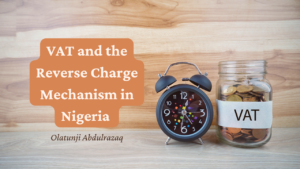South Africa’s Revenue Service releases updated guidance on seeking mutual agreement procedure assistance
South Africa’s Revenue Service (SARS) has issued an updated guide on Mutual Agreement Procedures (Issue 2) for taxpayers. The Guide contains general information on the background to the mutual agreement procedure (MAP), the use of MAP in general, and specific guidance relevant for cases related to transfer pricing.
This note summarizes the information contained in the guide, which includes:
- circumstances where MAP is available
- submitting a MAP request
- concluding a MAP request
- MAP and interaction with domestic law
Circumstances where MAP is available
The Guide provides information on instances where MAP is available to taxpayers, which could include instances where taxation is not in accordance with a tax treaty and where there are difficulties or doubts arising about the interpretation or application of a tax treaty.
Taxation not in accordance with a tax treaty
Tax treaties concluded between South Africa and other jurisdictions generally contain Article 25 on MAP based on the OECD Model Tax Convention on Income and on Capital. Article 25(1) and (2) of the Model Convention provide for the elimination in a particular case of taxation that is not in accordance with a tax treaty, including:
- cases where a lack of information as to the taxpayer’s actual situation has led to the misapplication of a tax treaty, especially regarding the determination of residency (Article 4)
- the existence of a permanent establishment (Article 5)
- pensions and annuities (Article 17) and
- the temporary nature of the services performed by an employee (Article 15).
According to the Guide, taxpayers may request MAP assistance in these instances of taxation that are contrary to a tax treaty, which in most cases involve juridical double taxation.
Difficulties or doubts arising as to the interpretation or application of a tax treaty
The Guide provides that SARS and the equivalent foreign competent authority (together, the Competent Authorities) will endeavour to resolve by mutual agreement “any difficulties or doubts arising as to the interpretation or application [of the relevant tax treaty]”. According to the Guide, the Competent Authorities can, in particular:
where a term has been incompletely or ambiguously defined in a tax treaty, complete or clarify its definition
where the laws of a jurisdiction have been changed without impairing the balance or affecting the substance of a tax treaty, settle any difficulties that may emerge from the new system of taxation arising out of such changes and
determine whether, and, if so, under what conditions, interest may be treated as dividends under the thin capitalisation rules in the jurisdiction of the borrower and give rise to relief for double taxation in the jurisdiction of residence of the lender in the same way as for dividends.
Submitting a MAP request
According to the Guide, taxpayers must submit, at a minimum, the following information to SARS to request MAP:
- taxpayer details
- the basis for the request
- facts of the case
- analysis of the issue(s) requested to be resolved via MAP
- a statement indicating whether the taxpayer has submitted the MAP request to the other jurisdiction(s)
- a statement confirming that all information and documentation provided in the MAP request is accurate and that the taxpayer will assist the Competent Authorities in their endeavours to resolve the MAP request by furnishing any other information or documentation required in a timely manner.
For cases involving withholding tax, the full names and surname, physical address, contact details, the taxpayer reference number (if known) and all receipts of tax withheld of the person who withheld the tax will also be required.
For cases involving transfer pricing, the following additional information will be required:
- details regarding the adjustment (or proposed adjustment)
- calculations setting out the adjustment or proposed adjustment translated in both currencies
- a statement describing whether any previous or subsequent years are to be audited where there is a prospect of similar issues arising
- an indication of any specific issues raised by the foreign competent authority
- statements indicating whether the taxpayer has filed a refund claim, or entered into a settlement agreement, in either of the jurisdictions related to the relief sought
- the company name, physical address, contact details and tax or other identification number of any related foreign taxpayer involved
According to the Guide, the SARS may consider MAP requests for multiple tax years and recurring issues, where such requests are made within the time period provided for in the tax treaty, and the relevant facts and circumstances are the same.
A taxpayer should submit the MAP request to the competent authority where it is a tax resident, or to the competent authorities of both contracting jurisdictions.
Concluding a MAP request
The time taken to resolve a MAP case may vary according to its complexity. The Guide provides that the competent authorities will endeavour to reach resolution on MAP cases within an average timeframe of 24 months.
SARS will notify the taxpayer: if a MAP request is rejected (providing a basis for such a decision); to update the taxpayer on the status of the MAP (to the extent that the update does not hinder the MAP process); upon conclusion of a MAP case, providing the details of the decision or agreement; upon implementation to provide the process to follow after an agreement is reached to provide relief (if applicable).
According to the Guide, where it is determined in a transfer pricing MAP case that an agreement will be reached between the competent authorities, the taxpayer will be informed by SARS of the contents of the proposed agreement or decision and provide a reasonable time to confirm acceptance of the proposal. A taxpayer who is not satisfied with the proposed agreement or decision may respond to the competent authorities in writing. The competent authorities may then either vary the proposed agreement or close the MAP case without an outcome that is satisfactory to the taxpayer.
Where a primary transfer pricing or profit reallocation adjustment is made by a contracting jurisdiction, SARS will seek to resolve the case by reaching a mutual understanding as to:
- the principles in the tax treaty
- the facts of the particular case
- how those principles should be applied to the facts of the case in a way that does not result in unrelieved double taxation
The guide further provides that relief from secondary adjustments may be the outcome of a MAP settlement.
MAP and interaction with domestic law
The obligation to pay tax, and the right of SARS to receive and recover tax, will not be suspended by an objection or appeal or pending the decision of a court of law pursuant to an appeal, unless a senior SARS official suspends payment of the disputed tax. According to the Guide, taxpayers should thus lodge an objection or appeal concurrently with the MAP process.
Key takeaways
As with other guides issued by SARS, the Guide is not considered an “official publication” or “general ruling” and accordingly does not create a practice generally prevailing under the relevant legislation. However, the publishing of this supplementary guidance shows a willingness on the part of South Africa to comply with the obligations arising from Action 14 of the OECD’s Base Erosion and Profit Shifting (BEPS) Action Plan, as well as a readiness to engage with taxpayers and tax treaty partners in MAP discussions.
As of February 12, 2018, South Africa is signatory to 79 effective tax treaties that are principally for the elimination of double taxation and the prevention of tax evasion and avoidance. South Africa is also signatory to the Multilateral Convention to implement tax treaty related measures to prevent base erosion and profit shifting. The Guide is a reflection of South Africas commitment to assist multinational enterprises under these bilateral and multilateral tax treaties.
Taxpayers should consider using MAP in a proactive strategy to prevent international tax disputes, as well as to resolve them in the post-BEPS environment. Countries are under increasing pressures from the OECD to resolve their MAP cases within 24 months, making it likely that MAP will become increasingly relevant for taxpayers.
The average time taken for SARS to close MAP cases (as of January 1, 2016) was approximately 17 months for transfer pricing cases and approximately 6 months for other cases. SARS had a total of 13 open MAP cases as of December 31, 2017, according to the most recent OECD MAP statistics.
Multinationals often conflate the time MAP can take with advisor costs, whereas the reality is that this process, although it might take time, often has relatively modest cost implications for taxpayers, as it is the responsibility of the competent authorities to pursue and resolve cases once they have accepted them. Furthermore, the costs of MAP, due to the primary role in the process being played by the competent authorities, can be significantly lower than domestic litigation.
See our APA and MAP Country Guide for more information about MAP assistance.











